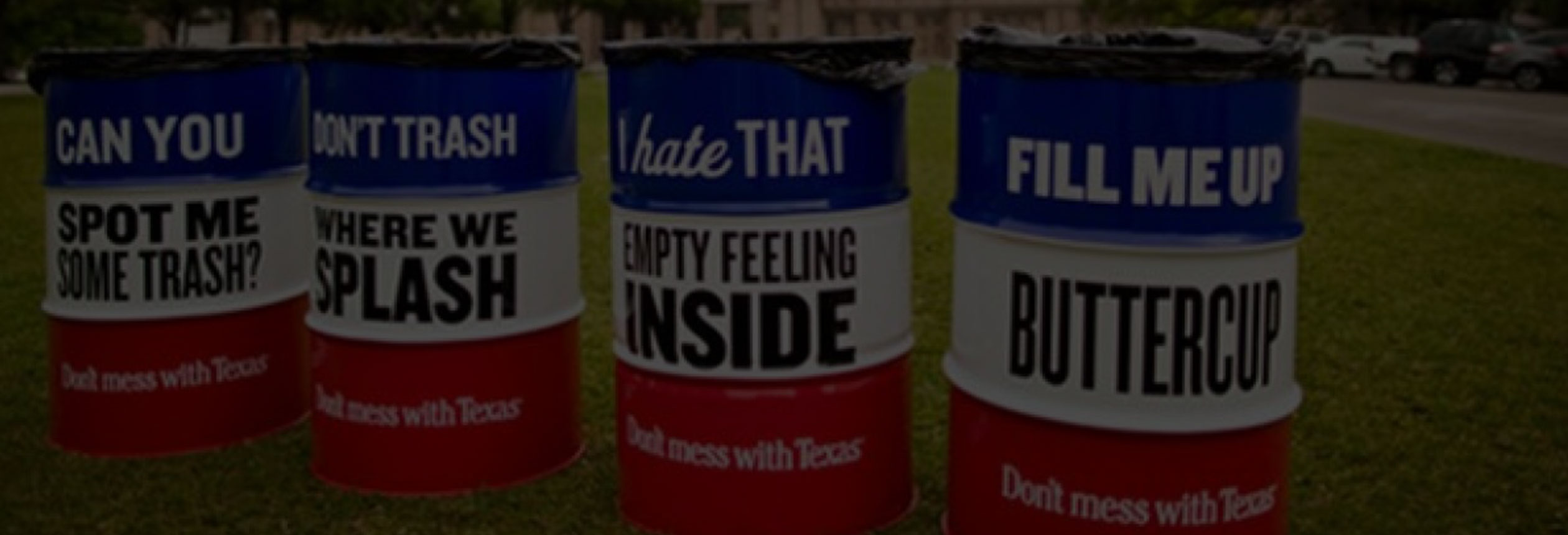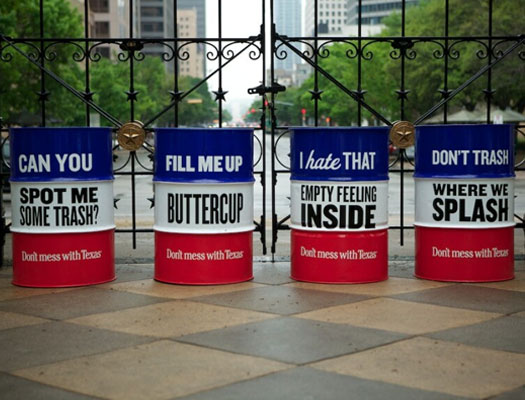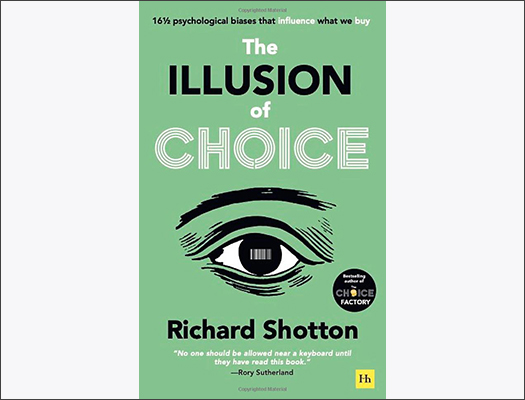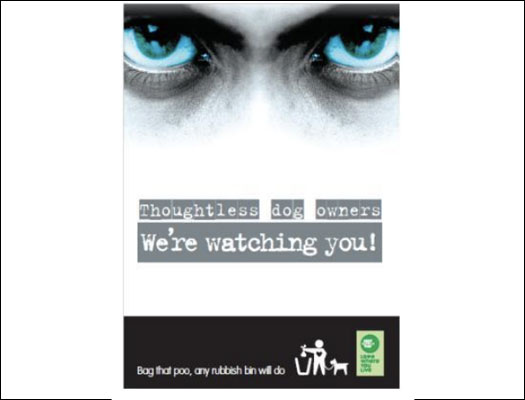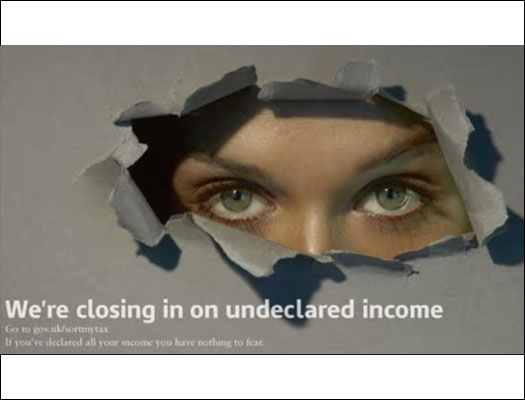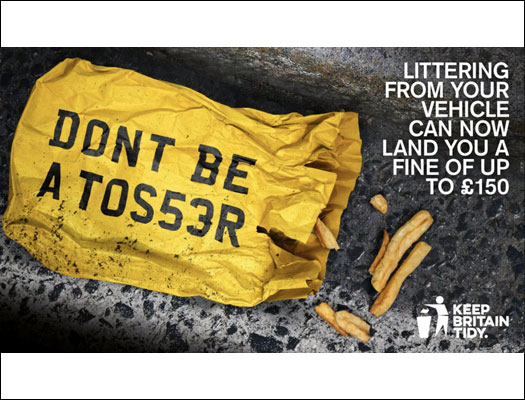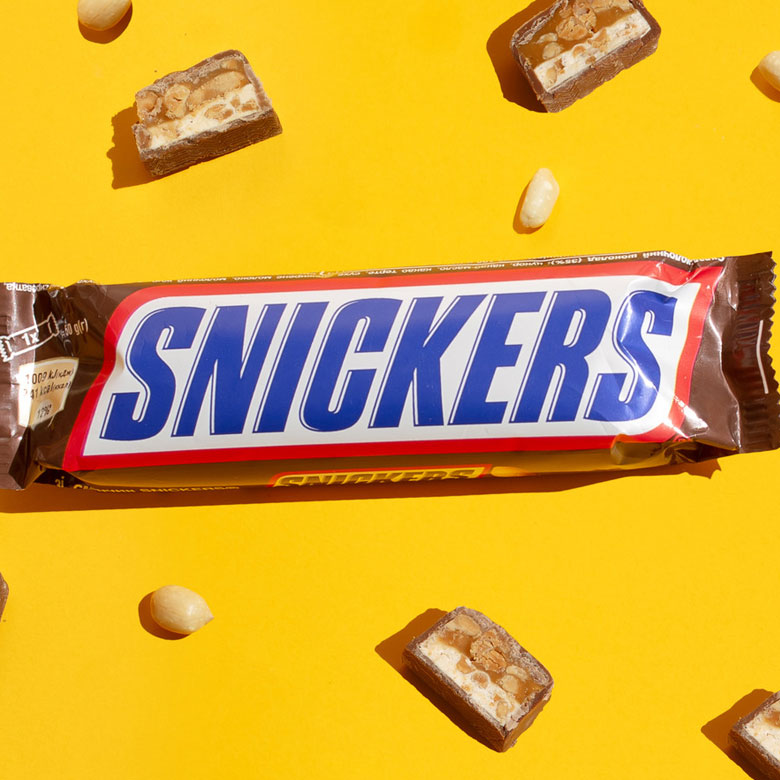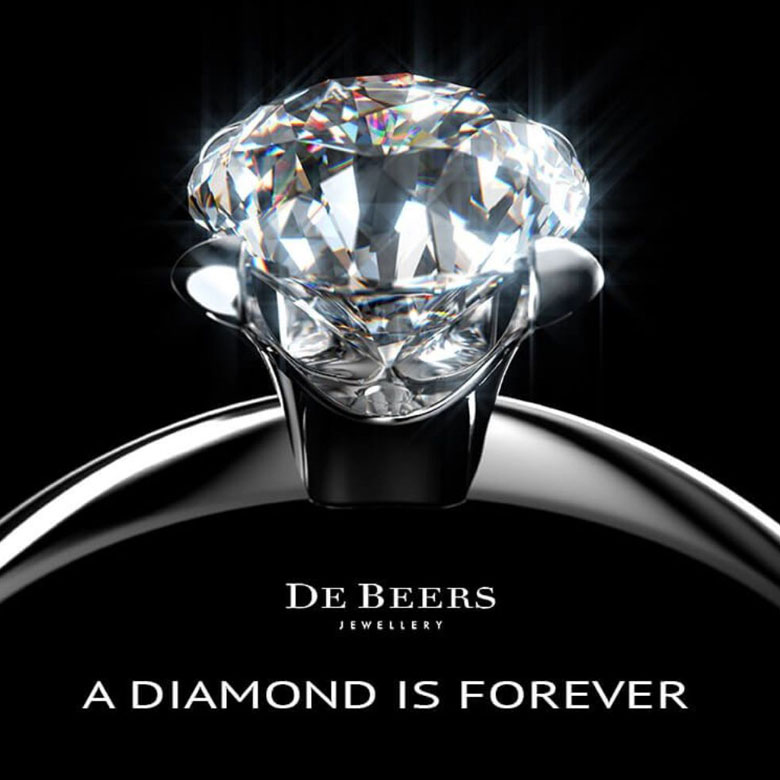00:00 / 19:23
Episode Transcript
- MichaelAaron: So welcome back, everyone, to Behavioral Science for Brands, a podcast where we bridge the gap between academics and marketing. Every other week we sit down and really decode the science behind some of America's most successful brands and the campaigns that power them. I'm MichaelAaron Flicker.
- Richard: And I'm Richard Shotton.
- MichaelAaron: Today we're doing trash graffiti and America's 43rd president, George W Bush.
- MichaelAaron: Let's get into it. So, Richard, today we're really talking about one of the most famous American campaigns. In four words, don't mess with Texas. And in those four words, Dont Mess With Texas the campaign uncovered not just a really great insight about what people felt, but almost became more than just an ad campaign. It became a statement about how people wanted to be seen in the world.
- MichaelAaron: Big impact here in America, but in Great Britain.
- Richard: None. I think you'd stop anyone in the street. 99, 100 people would never have heard of it. So it reflects maybe badly on us and being a bit too parochial. I think we could learn far more from campaigns that happened overseas.
- MichaelAaron: And a good reminder for Americans that just because it may be infamous in one continent can mean nothing in another.
- MichaelAaron: But you know what the four words are? Don't mess with Texas. What do you think it means?
- Richard: Well, pretty. When I first heard it, I would have thought it was some kind of country and western. So I was not Steven Seagal, who's the big kickboxing guy from Texas. I would have thought some kind of aggressive, macho phrase from, you know, some right country Western star or footballer.
- MichaelAaron: Right, Right. And so I said, what did I think it, man? And I went to chat gpt and I quote from the generative AI tool. Don't mess with Texas has come to represent the independent and tough Texan spirit. It signifies a sense of pride in the state's unique history, culture and identity. Many interpreted as a friendly warning that Texans are strong, proud and not to be underestimated.
- MichaelAaron: Pretty good by Chat gpt. But where did it all start? As we like to do, let's take a walk down history lane. So the year is 1985 and the agency is GSDA&M based out of Austin, Texas. And up to that point, the Texas Department of Transportation had been running. What you would all expect is, you know, expected littering anti littering ads which were keep Texas beautiful maintain our beautiful state.
- MichaelAaron: And Tim McClure, the creative director at GSDA&M said you know you're really advertising to yourselves we have to flip the script, look at who is actually littering in our state. Young man, machismo. They want to, you know, they just don't see how these ads speak to them. So we have to reframe it to really talk to them as in their own terms.
- MichaelAaron: Don't Mess with Texas was born and it was originally delivered as a public service announcement by Stevie Ray Vaughan, a famous Texas blues guitarist. The slogan was a huge success. It ends up reducing litter on Texas highways by 72%. This campaign has a lot long run, 28 TV spots over a 12 year period. Everyone from Lance Armstrong to LeAnn Rimes were featured in the spots or delivering this message.
- MichaelAaron: It became so mainstream that when George W Bush was accepting his nomination at the 2000 Republican National Convention, even he uses the phrase don't mess with Texas. So four simple words, Richard, But what's going on here? What's the behavioral science that powers this connection?
- Richard: I think the insight here is all around is what they have recognized is there are two ways to get people to stop littering.
- Richard: You can either get your audience to change their worldview and go from being rebellious and anti-authoritarian and to caring about the planet.
- MichaelAaron: Very high left
- Richard: very high, very hard work. Or what they did. It was think, Well, how can we tap into state pride? How can we reframe littering as being an affront to state pride, something that these interlopers in Oklahoma or Louisiana might do, But certainly not any red blooded Texan.
- Richard: And therefore by doing that, by reframing the behavior, one as in line with someone's existing beliefs, you make it much, much easier for them to change their behavior. It might seem like that's a trivial difference, but probably the biggest theme of behavioral science is very small. Changes in the amount of effort involved can have very, very big effects on actual behavior.
- Richard: So one of my favorite studies in the world of AIDS is a study amongst doctors. There's a study done in 2018 by David Ocean, who's at the Penn Medical unit, and he worked with the local hospital. And at this local hospital, when doctors were prescribing drugs, they went to that computer and there was a dropdown menu. And it used to be from 2014 to 2017, the branded drugs were at the top.
- Richard: And then you have to scroll past all the branded drugs to get to the generic drugs at the bottom. So generic drugs are pharmacologically exactly the same.
- MichaelAaron: They're just not, they're not branded.
- Richard: Yes, exactly. Yeah. And what he found was with that set up, 75% of the drugs that were administered or prescribed were generic. Late 2017. They change the ordering process.
- Richard: So now in that dropdown menu, the generics are at the top, the branded or the bottom. So you're adding two or 3 seconds of extra effort to the doctor if he wants to prescribe a branded drug. And you see a huge change in behavior, 98% of the drugs now that are prescribed are generic. Now that is a tiny bit of effort.
- Richard: That is a professional audience who would say that what they prescribe is solely based on the needs of the patient. But even amongst this audience, they are deeply influenced by a couple of seconds of effort. Now, if that level of effort puts people off now, going back to Don't mess with Texas, think about the scale of the challenge you are posing.
- Richard: If you want to get someone to change their entire worldview. Much better for advertisers to be a little bit more humble and think more about reframing than trying to change their audience.
- MichaelAaron: Um, you know, hearing you talk about this, Richard really just reminds me about how so much of our job is just removing friction from the path that people are going to take and giving them nudges in the direction that can be positive for our commercial purposes.
- MichaelAaron: You know, that little bit of friction can sometimes make all the difference in the world. As you were saying, what the order of the drugs list it for the docs are.
- Richard: And then in the example I've given and this is where most experiments set is around removing actual friction, physical friction, logistical friction. What's so interesting about the Don't Mess with Texas campaign is they have identified not just logistical friction that needs to be removed, but they've identified the psychological friction.
- Richard: And the psychological friction is expecting someone to change their worldview. That is a hellishly hard task. People do not want to change their fundamental attitudes and beliefs. So need needs have a bit more humility, recognize the scale of the problem, and instead of trying to change the audience, change what their product represents, reframe in this case, littering, reframe it as being consistent with state pride, not littering, rather than something you do to further the environmental cause.
- Richard: And if marketers are less overconfident, I think that would benefit a lot of behavior change interventions.
- MichaelAaron: It's interesting because what you and I were talking about before the show got started today is that one thing that marketers and advertisers have that's so unique is the reach of millions, tens of millions, hundreds of millions of audience with the message that we have this power of reach and frequency.
- MichaelAaron: But does power reach? So what we put in there is all that matters
- Richard: Yeah, absolutely. I think this paradox of advertising can have massive commercial benefits. You know, big companies making hundreds, millions, billions of pounds based on their advertising. But that doesn't mean advertising has a big effect
- MichaelAaron: on any one person.
- Richard: Exactly. So the way to maximize total benefit to the brand is accepting is a weak force and individual basis.
- Richard: And trying to make changes as easy as possible.
- MichaelAaron: It goes against what I think so many in our industry fancied themselves as, which is that almost like magician is 1/32 spot one one ad and we boom can make you do something different when really it's a matter of how can we make a small change that we can do across a lot of people.
- Richard: I'm sure I've read someone say advertising is a bizarre industry in which the boosters and the critics both overestimate its impact.
- MichaelAaron: So we feel that Don't Mess with Texas is a really great example of reframe timing the situation. Before the show, Richard and I were talking about where else was there a time where a big action, a big challenge really used a frame to change it?
- MichaelAaron: And we were talking about electric cars. Now for decades, electric cars and electric car manufacturers have said to the world that you shouldn't use fossil fuels. There was shaming. There was a sense that you had to use electric cars to save the world with very little adoption. Even if you looked at the Toyota Prius and looked different than a normal car, you really was an outlier.
- MichaelAaron: What Tesla so brilliantly saw in early adopters was that driving an electric car was more a status symbol than it was about doing good for the environment. So if they developed a luxury car, they launched with the Model S, it was really a status symbol that happened to be electric. And that was what really helped Tesla take off.
- MichaelAaron: So we see this power of reframing and meeting people where they are has been used brilliantly in America. Don't mess with Texas anti littering Tesla with electric cars Richard what about in the UK whereas anti littering campaigns gone well have gone badly
- Richard: yeah so there's nothing of the scale of don't mess with Texas
- Richard: There's nothing that has reached those kinds of cultural heights but there are quite a few experiments that have been used in behavioral science that have improved local campaigns.
- Richard: So one of my favorites and this could be used much more broadly, is a wonderful study from the University of Newcastle in 2006, and it was run by Melissa Bates. So in the University staff room they have a honesty box for using the milk. So if you're an academic, you have a cup of tea, you put your milk in, you better put $0.10 in dishonesty box, okay for the milk,
- MichaelAaron: okay.
- Richard: And they run an experiment over ten weeks and on some weeks they put a little petrol above the honesty box of flowers. Then all alternate weeks they put a little picture above the honesty box of eyes and they monitor the amount of money they raise per liter of milk used, and they find that there is a rough doubling of money collected when the eyes are active.
- MichaelAaron: A little Spooky.
- Richard: Yeah. Looks like this isn't magic though. There's a very rational explanation. So their argument is their own. Essentially these pictures of eyes remind us that we might be being watched. And if we think we're being watched, we are much more likely to behave in a socially responsible way. So when the eyes are present, people think how society expects me to behave and they're more likely to adhere to those norms.
- Richard: Now, that insight, when it became known as the walking away, is a fact and it's been shown in multiple settings that insight in the UK is quite rightly used with anti-religion campaigns. You'll often get a message from the camps. We've got a message from the local government saying don't litter and above the text there will often be a pair of eyes.
- Richard: There'll be a picture of someone I sing above. I thought about that text. So that's something that I think is a small scale example of behavior or science being applied to underage drink campaigns.
- MichaelAaron: We have to find some examples of this and put them in the show. Now, I can't think of any advertisement in America that uses eyes.
- Richard: So the government does it regularly.
- Richard: So there's anti littering ads. There'll be messages from the government about paying your tax. Yeah. When there are rows of cycles being part, they will often be pictures of items and it's quite a common government tactic now to remind people of
- MichaelAaron: the socially responsible thing to do.
- Richard: Yeah,
- MichaelAaron: fascinating. Okay, so for my American sensibilities, a little edgy to have eyes watching you a little Orwellian, if you will, but sometimes there's some negative effects.
- Richard: Yes. So there are quite a few examples of campaigns that have performed before, because I think they misuse ideas by people science. So there is a danger that if your messaging is overly authoritarian, if it's too directional, you encourage a problem called reactance. If you tell people what to do, they sometimes push back against them.
- MichaelAaron: They don't like that.
- Richard: So there's a 1978 study from the University of Texas and the psychologist Penne Backer, and he gets signs and he puts them up in male toilets. And sometimes the signs say, please don't graffiti. And other times they sign, say, no, do not graffiti, underlining balding, exclamation marks. And he rotates these signs on a four hour basis and he finds that when the oval authoritarian sign runs, there is about twice as much graffiti as when the more polite sign is active.
- Richard: So his argument is one of the big drivers of human behavior is a desire to retain agency a result, a desire to retain control. And if we feel that's been taken away from us, especially if it comes from that removal of authority comes from someone who is in a position of power, then reactance occurs. We push back and we actually act in the way that the communicator doesn't want us to behave, that you see in a lot of littering campaigns.
- Richard: You know, Don't be a tosser was one message that used to run a lot of parks. So be careful. If you want someone to change their behavior, don't communicate in an overly authoritarian manner because often it will backfire.
- MichaelAaron: Fascinating, Richard, like we always like to do. Let's sum it up for our listeners. What are the key takeaways from this episode?
- Richard: There are three big things from this episode. The most important properly is the importance of making change easy. The great thing about Don't Mess with Texas is they interpret that problem laterally. They didn't just think about logistical friction. They thought about psychological friction. So reframe your product to be in line with your audience beliefs rather than try and change audience beliefs.
- Richard: That's the first big thing. The second study we talked about was the Melissa Bates and study into watching. Always the key principle there is people's ethics are not fixed. If you want people to act honestly, remind them that they might be being watched by the presence of eyes. Even a subtle reminder will work very well. And if you do that, they're more likely to behave in the way that society expects.
- Richard: And then the final study was that principle of reactance. And the argument here is be careful about not being too authoritarian in your demands that people want to retain a sense of control and agency in their lives. And if they feel that's being denied them, they will often push back against communications. And you're well-meaning attempts to intervene will often backfire.
- MichaelAaron: Richard, we're talking Texas and everyone thinks of barbecue. When you're in Texas. In America, barbecuing is an art form from wet rubs to dry rubs from sweet to spicy. Your favorite type of barbecue.
- Richard: I must admit, to have revealed my ignorance here. I didn't know there were types of barbecue. I thought it was an alternative to boiling or frying.
- Richard: This is new news.
- MichaelAaron: This is only further propping up the stereotype of UK eaters and cooking. But not to say, Next time you're in America, we'll have you over. For all the different types of barbecue the country has to offer. A proud, proud history. Thanks everyone so much for tuning in to behavioral science for brands. I'm MichaelAaron Flicker.
- Richard: And I'm Richard Shotton.
- MichaelAaron: If you enjoyed our show today, please give a good rating or review. And if you're implementing behavioral science at your company or within your brand, do let us know. Email us at [email protected].
- AD: Behavioral Science for brands is brought to you by Function Growth AdAge’s 2023 Newcomer Agency of the year. Function Growth uses behavioral science to supercharge growth for direct to consumer brands.They operate across a wide spectrum of services as a one stop shop and integrated strategic partner for brands with high growth potential. Unlike typical agencies, function growth leverage is shared risk and reward compensation models, meaning they only make money when your brand grows, reach out to them. If you'd like to unlock the power of behavioral science to accelerate growth for your brand.
Episode Highlights
Don't Mess With Texas Campaign
The famous "Don't Mess With Texas" campaign became more than just an ad campaign, representing a statement about how people wanted to be seen in the world.
Reframing Littering
The behavioral science behind the campaign tapped into state pride and reframed littering as inconsistent with Texan identity, making it easier for people to change their behavior.
Resources & Useful Links
Want to dig deeper on the idea of social proof and the intention of actions gap? Here are some
additional resources that show how to make your brand more popular with consumers and the
importance of combining motivation with triggers to convert intention into action.
